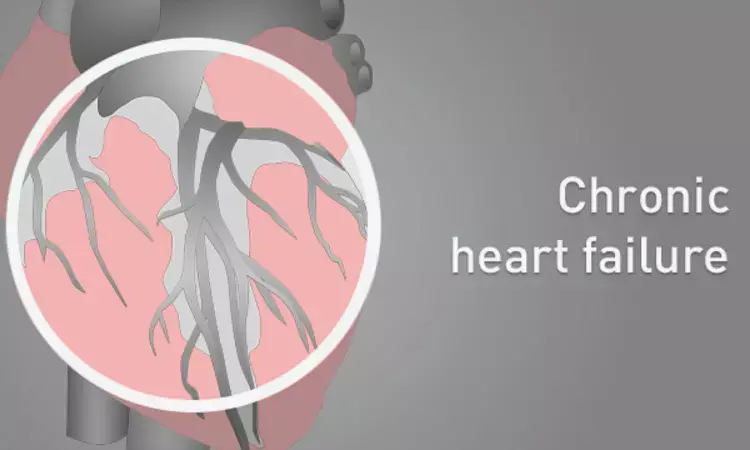- Home
- Medical news & Guidelines
- Anesthesiology
- Cardiology and CTVS
- Critical Care
- Dentistry
- Dermatology
- Diabetes and Endocrinology
- ENT
- Gastroenterology
- Medicine
- Nephrology
- Neurology
- Obstretics-Gynaecology
- Oncology
- Ophthalmology
- Orthopaedics
- Pediatrics-Neonatology
- Psychiatry
- Pulmonology
- Radiology
- Surgery
- Urology
- Laboratory Medicine
- Diet
- Nursing
- Paramedical
- Physiotherapy
- Health news
- Fact Check
- Bone Health Fact Check
- Brain Health Fact Check
- Cancer Related Fact Check
- Child Care Fact Check
- Dental and oral health fact check
- Diabetes and metabolic health fact check
- Diet and Nutrition Fact Check
- Eye and ENT Care Fact Check
- Fitness fact check
- Gut health fact check
- Heart health fact check
- Kidney health fact check
- Medical education fact check
- Men's health fact check
- Respiratory fact check
- Skin and hair care fact check
- Vaccine and Immunization fact check
- Women's health fact check
- AYUSH
- State News
- Andaman and Nicobar Islands
- Andhra Pradesh
- Arunachal Pradesh
- Assam
- Bihar
- Chandigarh
- Chattisgarh
- Dadra and Nagar Haveli
- Daman and Diu
- Delhi
- Goa
- Gujarat
- Haryana
- Himachal Pradesh
- Jammu & Kashmir
- Jharkhand
- Karnataka
- Kerala
- Ladakh
- Lakshadweep
- Madhya Pradesh
- Maharashtra
- Manipur
- Meghalaya
- Mizoram
- Nagaland
- Odisha
- Puducherry
- Punjab
- Rajasthan
- Sikkim
- Tamil Nadu
- Telangana
- Tripura
- Uttar Pradesh
- Uttrakhand
- West Bengal
- Medical Education
- Industry
IV furosemide and metolazone lead to higher natriuresis in ambulatory chronic heart failure patients: JACC

Israel: A recent study, DEA-HF, has provided valuable insights into the efficacy of different diuretic regimens for managing congestion in ambulatory patients with heart failure. This intra-patient comparison sheds light on optimal strategies for diuresis, aiming to improve outcomes and quality of life for individuals with this chronic condition.
The study published in JACC: Heart Failure revealed a significantly higher natriuresis with furosemide plus metolazone in ambulatory chronic heart failure (CHF) patients compared to intravenous (IV) furosemide alone or furosemide plus acetazolamide.
The use of IV furosemide plus the thiazide-like diuretic metolazone also led to greater body weight and urine volume reductions compared to other diuretic regimens.
The findings, also presented at the European Society of Cardiology Heart Failure 2024 Congress, should help direct the diuretics use in patients with severe chronic HF experiencing refractory congestion. According to the researchers, the study provides some of the first data on the best diuretic strategy for those with chronic HF.
Heart failure, a chronic and progressive condition characterized by the heart's inability to pump blood effectively, often leads to fluid retention and congestion, resulting in symptoms such as dyspnea, fatigue, and edema. Diuretic therapy is central to managing congestion and alleviating symptoms in heart failure patients.
Limited evidence exists regarding the safety and efficacy of diuretic regimens in ambulatory, congestion-refractory, chronic heart failure patients. To fill this knowledge gap, Aharon (Ronnie) Abbo, Department of Cardiology, and the Rambam Health Care Campus, Haifa, Israel, and colleagues aimed to compare the potency and safety of commonly used diuretic regimens in CHF patients.
For this purpose, the researchers conducted a prospective, randomized, open-label, crossover study in NYHA class II-IV CHF patients, treated in an ambulatory day-care unit. Each patient received three different diuretic regimens: IV furosemide 250mg; IV furosemide 250mg plus oral metolazone 5mg; and IV furosemide 250mg plus IV acetazolamide 500mg. Treatment was administered once a week, in one of six randomized sequences.
The study's primary endpoint was total sodium excretion, and the secondary was total urinary volume excreted, measured for 6 hours post-treatment initiation. Forty-two patients were recruited.
The study led to the following findings:
- Administration of furosemide plus metolazone resulted in the highest weight of sodium excreted, 4691 mg compared to furosemide alone 3835 mg, and to furosemide plus acetazolamide 3584 mg.
- Furosemide plus metolazone resulted in 1.84 liters of urine, compared to 1.58 liters collected following administration of furosemide plus acetazolamide and 1.71 liters following furosemide alone.
- The incidence of worsening renal function (WRF) was significantly higher when adding metolazone (41%) to furosemide compared to furosemide alone (17%) and to furosemide plus acetazolamide (2.6%).
"Furosemide plus metolazone resulted in a significantly higher natriuresis than IV furosemide alone or furosemide plus acetazolamide in ambulatory CHF patients," the researchers wrote.
As the prevalence of heart failure continues to rise globally, studies like DEA-HF play a critical role in advancing evidence-based approaches to disease management. By refining treatment strategies and addressing key therapeutic challenges, such as congestion management, healthcare providers can better meet the needs of heart failure patients and improve long-term outcomes.
Reference:
Abbo A, Gruber A, Volis I, et al. Diuresis efficacy in ambulatory congested heart failure patients: intra-patient comparison of three diuretic regimens (DEA-HF). JACC Heart Fail. 2024;Epub ahead of print.
Dr Kamal Kant Kohli-MBBS, DTCD- a chest specialist with more than 30 years of practice and a flair for writing clinical articles, Dr Kamal Kant Kohli joined Medical Dialogues as a Chief Editor of Medical News. Besides writing articles, as an editor, he proofreads and verifies all the medical content published on Medical Dialogues including those coming from journals, studies,medical conferences,guidelines etc. Email: drkohli@medicaldialogues.in. Contact no. 011-43720751


